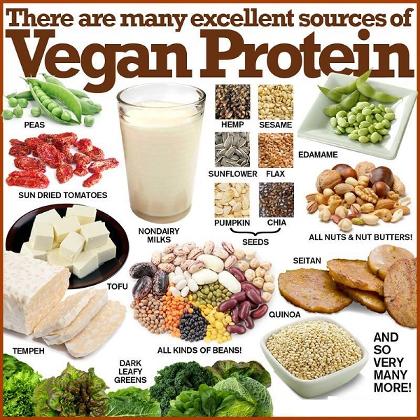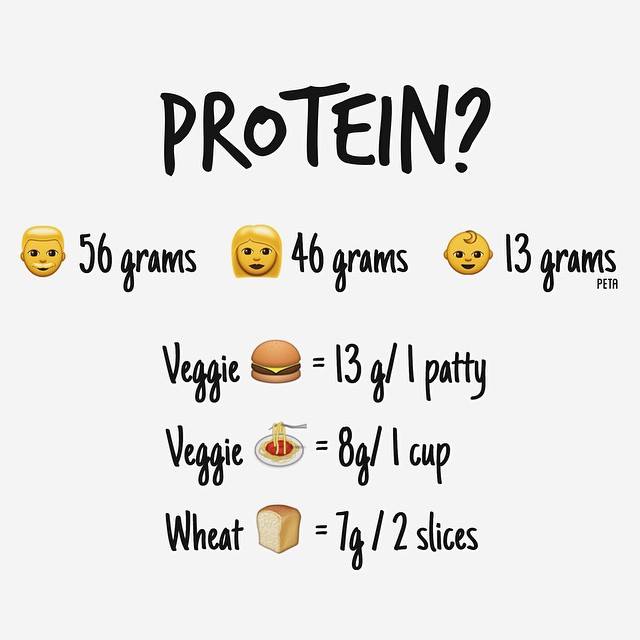Translate This Page
Proteins
It's only when you become a vegan or a vegetarian that you discover that everyone else (or so it seems) is an expert on nutrition. Their number one concern is: where do you get your proteins from if you're not eating meat or animal products? When you reply, "From plants" (duh, obviously), you are generally quickly informed that plant proteins are inferior to animal proteins because animal proteins are "complete". By this they mean that animal proteins contain all the essential amino acids that we need to synthesise our own proteins. The consequence being that a vegan needs to consume two different sources of proteins e.g. whole grains and legumes such as beans, lentils, nuts and seeds. It has recently been discovered that the liver can store amino acids, so it is not necessary to combine them in the same meal. Mind you, that isn't exactly rocket science in any case: rice and beans, chilli beans and tacos, hummus and pita bread are all well known examples of suitable combinations.
The next question is whether you are getting enough. A recommended daily intake (RDI) of 0.8 grams per kilo of body weight seems to be generally accepted. This means 46 grams per day for the average woman and 54 for the average man, so 50 grams on average for an adult. Dietary guidelines 2015 - 2020
According to the FAO, the average American consumes 110 grams of protein per day of which 70 grams is animal proteins. That means 40 grams comes from vegetables: that's 80% of the RDI. See page 64 of the FAO Report http://www.fao.org/3/a-i5716t.pdf
The average Canadian actually gets 48.9 grams of protein (that's almost 100% of his/her RDI) from vegetables. The average European has a total intake of 102 grams of protein per day of which 57.8 is from animals, 44.2 from vegetables.
These figures illustrate just how easy it is to take in enough protein without exploiting animals.

As you can see from above many people eat much more than their RDI of protein and that isn't necessarily a good thing for them. Any excess proteins are broken down and used as energy: about 4 Calories per gram and if that energy isn't needed it's stored as fat. Excess protein consumption is not only implicated in obesity but also osteoporosis and impaired kidney function. Excess animal proteins, especially red meat, come with their own side order of cholesterol and saturated fat which
are implicated in cancer and heart disease.
Eating a mixture of protein containing plants such as grains, vegetables and legumes gives an adequate low-fat protein intake without cholesterol and saturated fats. They also provide lots of fibre which may be absent in a diet that depends too much on animal proteins.
As well as the long-term health benefits of eating vegetable proteins, there is an immediate benefit to the health of your finances. Animal proteins are more expensive per gram of protein than lentils, peanuts, tofu etc.

- (Intensive) Animal farming and slaughter for meat/organs and other animal products like dairy products and eggs
- (Intensive) Animal farming (Mammals, Birds and Reptiles) for their skin (leather) and fur
- (Intensive) Animal farming for wool
- (Intensive) Goose farming for down
- Fishing and fish farming
- Circuses, Zoos and Marine Parks
- Animal testing and animals used in medical or veterinary universities
- Hunting and trophy hunting
- (Cruel) Animal Sports like bullfighting and other fiestas, cockfighting, horse racing, greyhound racing, sled dogs racing, pigeon racing, pig wrestling, rodeos etc.
- Pets
- Horse and pony riding
- The use of animals in films
- Zoophilia
- Anti-speciesism and climate change
- What can you do?